Search Articles
Browse Content (p. 71)
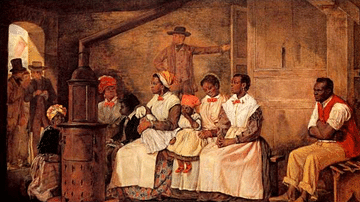
Article
Virginia Slave Laws and Development of Colonial American Slavery
Racialized chattel slavery developed in the English colonies of North America between 1640-1660 and was fully institutionalized by 1700. Although slavery was practiced in the New England and Middle colonies, and Massachusetts Bay Colony passed...
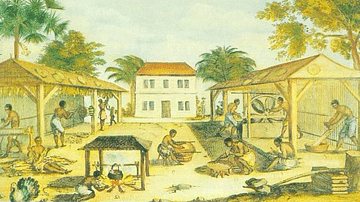
Article
African Slave Life in Colonial British America
African slave life in Colonial British America was far worse than slavery practiced in the Americas prior to the arrival of Europeans. The indigenous tribes took people as slaves in raids, enslaved those convicted of crimes, and traded slaves...

Article
Battle of Alesia
The Battle of Alesia was a decisive Roman victory in Julius Caesar's Gallic Wars in September 52 BCE. Roman commander Julius Caesar (100-44 BCE) and his legions faced a united Gallic army under the command of Vercingetorix (82-46 BCE), chief...
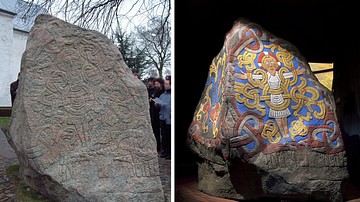
Article
Harald Bluetooth & the Conversion of Denmark
In Scandinavia, Christianity spread due to the support and encouragement of political rulers at the top of the society above all else. Conversion, defined here as the actions taken by kings or clerics to introduce the new religion, did not...

Article
Slavery in Colonial America
Slavery in Colonial America, defined as white English settlers enslaving Africans, began in 1640 in the Jamestown Colony of Virginia but had already been embraced as policy prior to that date with the enslavement and deportation of Native...
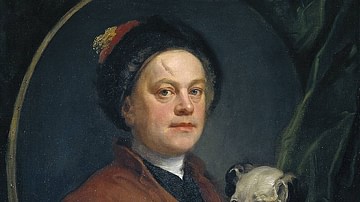
Article
Dogs & Their Collars in the Age of Enlightenment
In medieval and Renaissance Europe, dogs were considered little more than 'machines' which performed certain tasks, such as guarding a home or tracking game, but this view changed significantly during the Age of Enlightenment (also known...

Article
Colonial American Currency
Colonial American currency was a work in progress from the time of the earliest English settlements of the 1600s until the United States of America minted its own money in 1783. The monetary system was far from standardized, and trade within...
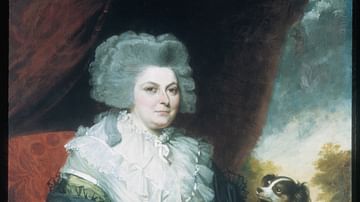
Article
Pets in Colonial America
Pets in Colonial America were kept by the colonists for the same reasons they were in Europe: for companionship and, in the case of dogs, for protection, hunting, and herding. Cats controlled vermin in homes and barns until the 18th century...
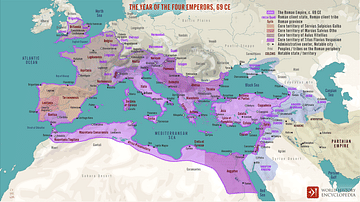
Article
The Year of the Four Emperors & the Demise of Four Roman Legions
During the Year of the Four Emperors (69 CE), the fight between Vitellius and Vespasian would ultimately bring about the demise of four legions, the XV Primigenia, I Germanica, IIII Macedonica, and XVI Gallia. All four of these legions had...
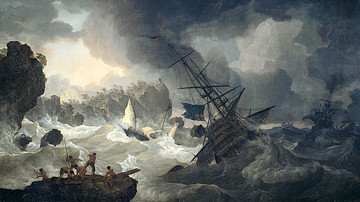
Article
Top 5 'Deep-Dive' Virtual Shipwrecks
According to UNESCO, an estimated three million shipwrecks are scattered in the oceans’ deep canyons, trenches, and coral reefs and remain undiscovered. These shipwrecks preserve historical information and provide clues about how people lived...